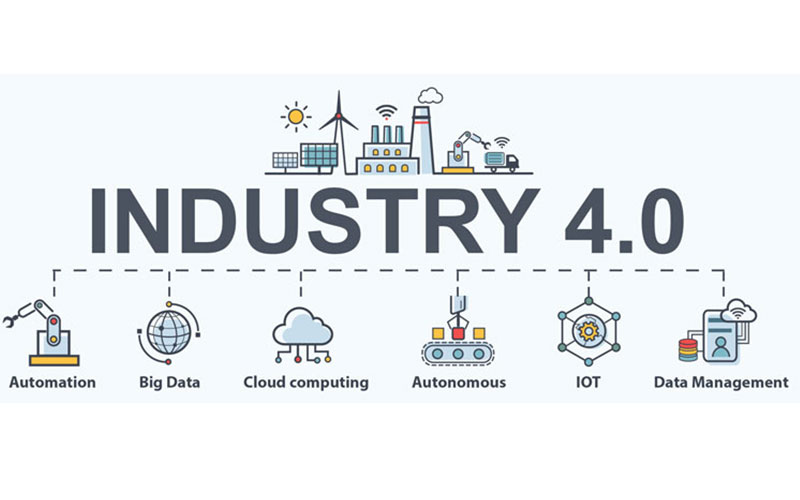Industry 4.0 has moved far beyond its early status as a technological buzzword. The application of data-collecting, automated technologies is changing the traditional manufacturing plant by creating efficiencies, pointing out areas of improvement and integrating systems from the very beginning stages of product production to the final shipping process.
Plastics Business spoke with Steve Bieszczat, CMO of DELMIAworks, to get his perspective on how plastics manufacturers can utilize Industry 4.0 to make their operations more effective, especially as we approach a critical recovery period after the COVID-19 slowdown.
Q: Industry 4.0 is about the transformation of traditional manufacturing operations by implementing smart technologies. These new technologies are not confined to molding machines, but also being implemented in auxiliary equipment, cobots, robots and more. Why is it important that data is collected and utilized throughout an organization?
Molding machines used to operate as standalone systems. Increasingly, they are part of automated, smart systems that track all stages of the process, from storing feed stock to pre-conditioning materials, production of the products, and handling and packaging finished goods. Because a failure or success at any singular point affects the entire system, it’s important to monitor the entire system.
With Industry 4.0, IoT technologies provide the data required to catch problems as they are evolving and before they become issues. Additionally, the data offer critical insights into rates of production, root cause failure analysis and other performance metrics to support plastics manufacturers’ decision-making.
Q: Cost efficiencies are critical right now, as many in the manufacturing community struggle to recover from the shutdowns and slowdowns that resulted from COVID-19. How does Industry 4.0 contribute to a more cost-efficient organization?
Cost efficiencies are really critical during this COVID-19 era – but even more important than the dollar costs are the time efficiencies. Manufacturers want to limit social exposure, so that employees don’t have to be on-site any more than necessary. That leads to questions like, “What’s the shortest possible time to get a machine to produce?” and “How can we accelerate delivery to minimize exposure?”
With Industry 4.0 adoption, smart machines self-report, so fewer operators are needed. It also means that failures are caught immediately, enabling teams to correct the issues and get back into production sooner. In this way, plastics manufacturers can keep up and running as time-efficiently as possible with as few people as possible.
Q: How many plastics processors are utilizing Industry 4.0 capabilities within their facilities – or using it efficiently? Are there stumbling points that are common?
I haven’t seen any shop in the last three to four years that is not using some piece of Industry 4.0 technology, whether it’s the use of sensors or a smart system, but only about 30% to 40% are fully automated. There are three reasons for this.
First, the benefits of Industry 4.0-enabled automation are highest for repetitive production. By contrast, small, highly customized production runs require a level of flexibility that is sometimes still better supported by employees rather than automated machines.
Second, inertia – some manufacturers are more comfortable with the devil they know and hesitate to adopt new technologies.
Finally, there’s cost. There’s a big financial investment in buying new smart machines or doing a smart retrofit of existing equipment, and that investment usually is made over a long period of time.
Q: What recommendations do you have for manufacturers looking to expand their Industry 4.0 capabilities? Are there logical steps to take right now for greater success over the next six to nine months of recovery?
Manufacturers should start with an assessment of their job mix. There are three scenarios where this technology can help position plastics manufacturers for profitability and growth during the current market uncertainty and beyond.
Applying Industry 4.0-powered automation to high-volume, highly repetitive jobs enables manufacturers to take on huge spikes in demand, such as those we’ve been seeing in the medical and consumer goods markets.
Another factor is the need for monitoring and keeping exacting records in highly regulated industries. Here, the real-time monitoring and traceability enabled by Industry 4.0 systems significantly streamline reporting while ensuring accuracy.
A newer driver is energy demand, as more businesses and governments establish green consumption criteria. Newer, smart machines that produce significantly more parts per hour while using less energy can help manufacturers comply with sustainability requirements, and they often pay for themselves in three to four years.
 Steve Bieszczat is chief marketing officer for DELMIAworks (Formerly IQMS), where he is responsible for all aspects of DELMIAworks brand management, demand generation and product marketing. Prior to DELMIAworks, Bieszczat held senior marketing roles at ERP companies IQMS, Epicor and Activant Solutions.
Steve Bieszczat is chief marketing officer for DELMIAworks (Formerly IQMS), where he is responsible for all aspects of DELMIAworks brand management, demand generation and product marketing. Prior to DELMIAworks, Bieszczat held senior marketing roles at ERP companies IQMS, Epicor and Activant Solutions.
More information: www.iqms.com





